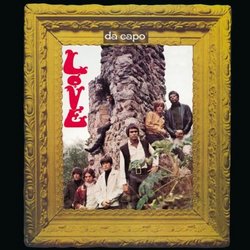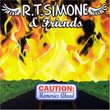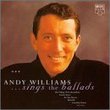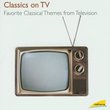| All Artists: Love Title: Da Capo Members Wishing: 9 Total Copies: 0 Label: Rhino/Wea UK Release Date: 6/3/2002 Album Type: Extra tracks, Import, Original recording remastered Genres: Alternative Rock, International Music, Pop, Rock, Classic Rock Styles: Oldies, Folk Rock, Psychedelic Rock Number of Discs: 1 SwapaCD Credits: 1 UPCs: 081227360429, 766488902525, 812273604294 |
Search - Love :: Da Capo
 | Love Da Capo Genres: Alternative Rock, International Music, Pop, Rock, Classic Rock
2002 reissue of 1967 classic features the original seven tracks in mono & stereo with 'Seven & Seven Is' (Tracking Session) added as a bonus. |
Larger Image |
CD DetailsSynopsis
Album Description 2002 reissue of 1967 classic features the original seven tracks in mono & stereo with 'Seven & Seven Is' (Tracking Session) added as a bonus. Similar CDs
|
CD ReviewsIt must be Love... elizabeth | Fiordland, New Zealand | 02/15/2004 (5 out of 5 stars) "This cd is truly a measure of how big a Love fan you are... 6 of the 7 tracks from _Da Capo_ appear on the excellent _Love Story_ anthology, so if you're buying this for "Revelation", I think the word "fanatic" can safely be applied to you (grin).Personally, I think the seven-person lineup heard here was Love's best. Side one is perhaps the best 17 minutes of music the group ever made. The arrival of Tijay Cantrelli (woodwinds) and Michael Stuart (drums) really expanded their sound and raised the level of musicianship. Nowhere is this more eveident than on "Revelation", that sprawling reminder of a bygone era. The song is too long and never really goes anywhere, but Stuart's drumming and Cantrelli's saxophone solo are definitely worth listening for (John Echolls complains loudly in the liner notes that Paul Rothschild ruined the song by moving sections of it around, but, really, it's hard to imagine it having turned out too much differently).As always, Rhino's packaging and sound are excellent. I thought hearing the remastered stereo mix would prove them wrong for having used the mono one on _Love Story_, but... they were right, the mono does sound better (except "Revelation")." Arthur Lee's first journey through brilliance Tezcatlipoca | Espinho,Portugal | 12/26/2003 (5 out of 5 stars) "Love's first album had its moments but was possibly too much of a muchness with some of the folk rock numbers being too similar among themselves."Da Capo's"diversity is its winning point with each song having a distinctive identity. That said,only"Revelation",a 19 minute jam,is a half realized concept,for the remaining 6 tracks all reach glorious heights.STEPHANIE KNOWS WHO-Deft time changes power this rocker.Possibly the closest to their first album,though more embelished than any track on their rough edged debut. ORANGE SKIES-A jazzy,laid back melody showcasing Arthur Lee's dexterity.Moreover it presents us with the inspired image"Orange Skies,carnivals and cotton candy and you". QUE VIDA!-This spanish flavored tune is another standout.The guitar riff driving this song is as beautiful as it is superb. 7&7IS-Proto Punk,a relentless 2 minute assault with werdifying guitars and a bass with an odd revving vibe as backdrop to Arthur's sped up vocals.It turned out to be Love's only hit single.The remaster's liner notes cleared up at last the meaning of the decades long mystery"My dad's is in the fireplace and my dog lies hypnotized"(it turned out to be quite simple,you'll see when you read it) THE CASTLE-75% of this song is instrumental but since the interplay between the guitar,the bass and the harpsichord is so close to perfection it would be unfair to ask for more. SHE COMES IN COLOURS-One of Love's top compositions and the album's high water-mark.From the emotionladen vocals to the strangely adequate flute nothing here descends below excellence. REVELATION-Love decided to recreate on an album their onstage gimmick in which every element of the band had his moment in the spotlight.Predictably the magic didn't pass entirely unto the the recording.Moments of brilliance are interspersed with tedious and redundant segments giving "Revelation"a flawed final form. "Da Capo" and its successor,the celebrated "Forever Changes",still come through(more than 30 years after after their release)as the most vibrantly original works released in the 60's. The Beatles had a more coherent career but Love's best work can feasibly surpass the Fab4's best releases. Essential Stuff." Unjustifiably Overlooked Some Angel's Trumpet | Beloit, Wisconsin | 12/30/2006 (4 out of 5 stars) "Standing in the shadow of an established genius can be a difficult thing. Even more, coming into contact with someone that expects you to measure up to or even surpass said genius can also be difficult if not daunting. While specific examples of this motif escape me right now, it has been used countless times in literature and film to produce some incredibly memorable characters and storylines. And it's justifiably so: in some ways, standing in the shadow of the established sort of dooms the reception of some works by default. (In my opinion, the most recent and glaring of this would be Neutral Milk Hotel's excellent On Avery Island.) However, sometimes it is wise to forget that the established exists to judge the music on its own merits. Other times, however, the two can be compared to reveal that the subordinate has its own eccentricities/traits that sets it completely apart for its "big cousin," if you will. I shall be going the comparative route.
De Capo's "big brother" is obviously Love's widely acclaimed magnum opus Forever Changes. It's known for utilizing grandiose Sgt. Pepperesque orchestration to accompany and ultimately illuminate Lee's tender orchestrations. However, to many modern ears that I encounter (those detached from the world of critics, I mean) it sounds "dated" or "old fashioned." This makes sense to me since while Forever Changes is a GREAT album, the session musicians sound fairly separated from the band. This is okay since it still works great for the album. However, with De Capo, we simply have two extra musicians. These musicians bring classically-trained harpsichord, jazzy saxophone and sparse/hip organ playing into the mix. As a result, the extra musicians sound more organic; they actually sound as if they are a PART of the music. As a result, the songs--at their very base--are given much more dimension and a sort of (for rock music, anyway) inexplicable charm/class. Whether it's the harpsichord-reinforced screamer rock of "Stephanie Knows Who," the riff driven madness of "Seven & Seven Is" or the semi-baroque "The Castle," a listener quickly becomes aware that you're listen to music written by someone whose musical knowledge extends beyond doo-wop and mere psychedelics. (Though the music most certainly isn't devoid of these influences.) You hear showtunes, classical music and jazz all mixed into the cauldron and dispensed through a healthy medium of great pop music. Even with Revolution, while it may not be a piece of clever songwriting, it still gives the musicians to showcase the musical virtuosity that wouldn't readily be apparent in the songs they play. And finally, there's my personal favorite "Que Vida," which never fails to make me feel as if I'm spiraling through the star-filled heavens. (Considering the amount of drugs taken during the writing of these songs, I wouldn't be surprised if Lee were feeling the same thing.) All in all, this is an amazingly creative psychedelic masterpiece that is frequently overlooked thanks to its successor. I really do not have to say much about the aftermath since the rest, as they say, is history. R.I.P Arthur Lee" |

 Track Listings (15) - Disc #1
Track Listings (15) - Disc #1


